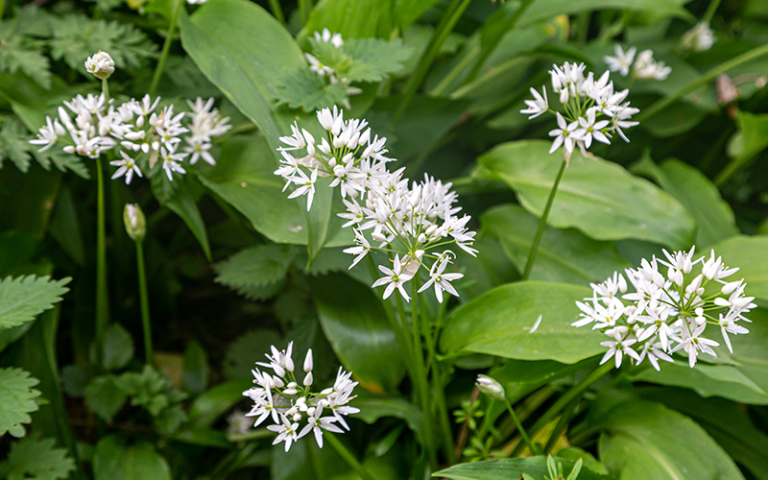Urban life causes “plant blindness” but foraging could be the cure
17 October 2022
A lack of interest and awareness for plants in urban societies, compared to animals, known as “plant blindness”, is caused by a lack of exposure to nature, according to a new study involving researchers from UCL and the University of Exeter.

Published in the journal Plants, People, Planet, the research suggests that “plant blindness” is not innate and could be cured by close contact with plants through activities such as wild food foraging.
The authors say that “plant blindness” - also known as plant awareness disparity - leads to the common misperception that plants are “less alive” than animals.
Professor Justin Dillon (IOE, UCL’s Faculty of Education & Society), who undertook the study whilst at the University of Exeter, said: “Plant blindness is an issue because many people do not connect with nature and don’t realise how much damage is being caused to our biodiversity through environmental degradation and anthropogenic climate change.
“We cannot afford to ignore plants or disregard their importance, and it’s vital that we’re able to come up with ways, such as through wild food foraging, to encourage younger generations, in particular, to learn and care more about plants - and their role in ecosystem functioning.”
To establish their findings, the researchers examined 326 articles published in academic journals from 1998 to 2020. They found that most studies showed that people had more interest in, paid more attention to, and were more likely to remember, information about animals.
However, there was no concrete evidence that “plant blindness” was an innate human characteristic or inevitable. Instead, “plant awareness” can develop where people had frequent interactions with plants that have direct relevance to their lives, including through first-hand experiences of edible and useful plants in local environments.
A decline in relevant experience with plants was found to lead to a cyclical process of inattention. However, the authors say that the key to breaking this cycle lies in introducing people to biodiverse places and altering their perceptions of the perceived utility of plants.
The authors found that diminished experience of nature in urbanised societies appeared to be the cause of “plant blindness”. A total of 35 studies found that modernisation or urbanisation had a negative impact on plant knowledge, with the increased reliance on urban services and a cash economy reducing the utility of plant foraging.
Study co-author Dr Bethan Stagg (University of Exeter) said: “People living in highly industrialised countries have a plant attention deficit due to a decline in relevant experience with plants, as opposed to a cognitive impediment to the visual perception of plants.
“People living in rural communities in low and middle-income countries were more likely to have high plant knowledge due to a dependence on natural resources. Interestingly, economic development does not necessarily lead to this knowledge being lost if communities still have access to the biodiverse environments.
“The key is to demonstrate some direct benefits of plants to people, as opposed to the indirect benefits through their pharmaceutical and industrial applications, or their value to remote, traditional societies. The level of botanical knowledge in younger generations is shown to be directly related to their perceived usefulness of this knowledge.
“'Wild plant' foraging shows considerable promise in this respect, both as a way of introducing people to multiple species and connecting them with some ‘modern-day’ health, cultural and recreational uses.”
The research found that older people had better plant knowledge, which studies suggest was because they were more likely to have nature-related hobbies.
Meanwhile, it was common for children – especially when young - to see plants as inferior to animals and not to be able to identify many species.
Although plant awareness disparity was identified in all age groups and genders, girls exhibited slightly higher levels of knowledge than boys
School attendance and work was found to reduce the time available to spend both in the natural environment and with family - negatively impacting how plant knowledge is shared between children and older relatives.
Links
- Read the study in Plants, People, Planet
- Professor Justin Dillon's academic profile
- IOE, UCL’s Faculty of Education & Society
- University of Exeter
Image
Source
Media contact
Evie Calder
Tel: +44 20 7679 8557
E: e.calder [at] ucl.ac.uk
 Close
Close

